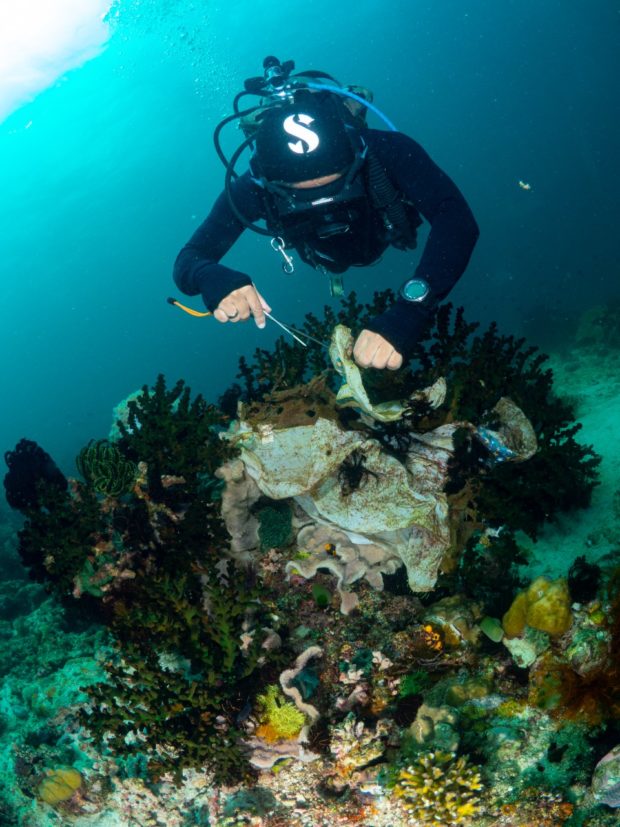MANILA, Philippines — Civil Society Organizations (CSOs) highlighted the rapid increase in plastic waste in the country due to COVID-19, making marine resources more vulnerable to environmental degradation.
The concern was raised during a clean-up operation in Mabini, Batangas, celebrating the International Coastal Clean-Up Day on September 18 and 19.
“The COVID-19 pandemic has exacerbated the problem as personal protective equipment against the virus such as disposable face masks and face shields found their way into the ocean also,” International ocean advocacy organization Oceana said in a statement.
In addition, several reports and studies have already shown dead marine animals washed ashore ingesting plastic waste.
In June, Oceana and other civil society alliances have already served notices to sue the National Solid Waste Management Commission (NSWMC) for failing to address the country’s plastic pollution problem.
READ: Solid waste management body being sued for ‘negligence’
Meanwhile, a clean-up operation has also been conducted to avert a potentially devastating infestation of starfish in Batangas coral reefs.
Joined by the Philippine Commission on Sports SCUBA Diving (PCSSD), Oceana helped Bantay Dagat of Tingloy to combat the spread of crown-of-thorns (COT) starfish.
PCSSD mobilized 12 divers to help in removing the COTs in Batalang Bato Marine Sanctuary and other areas nearby. At the same time, the community cleans up the coast of Barangay Santo Tomas, in Tingloy, Batangas.
“I’m very happy that we are able to do our part in cleaning up the marine environment even during this time of COVID19 pandemic. It gives a big morale boost to the local communities and for us also to be able to partner together with Oceana, that our passion for the environment with or without COVID-19,” said PCSSD commissioner Yvette Lee.
According to Oceana, the COT starfish is a natural inhabitant of reefs across the Indo-Pacific. Outbreaks, however, adversely affect coral reef ecosystems, leaving the corals weak which then ends up dying.
It added that this can further aggravate the already declining fish stocks “that have become the staple food and source of livelihood in coastal communities where the poorest population continue to suffer from the public health crisis and economic downtrend.”
RELATED STORIES


